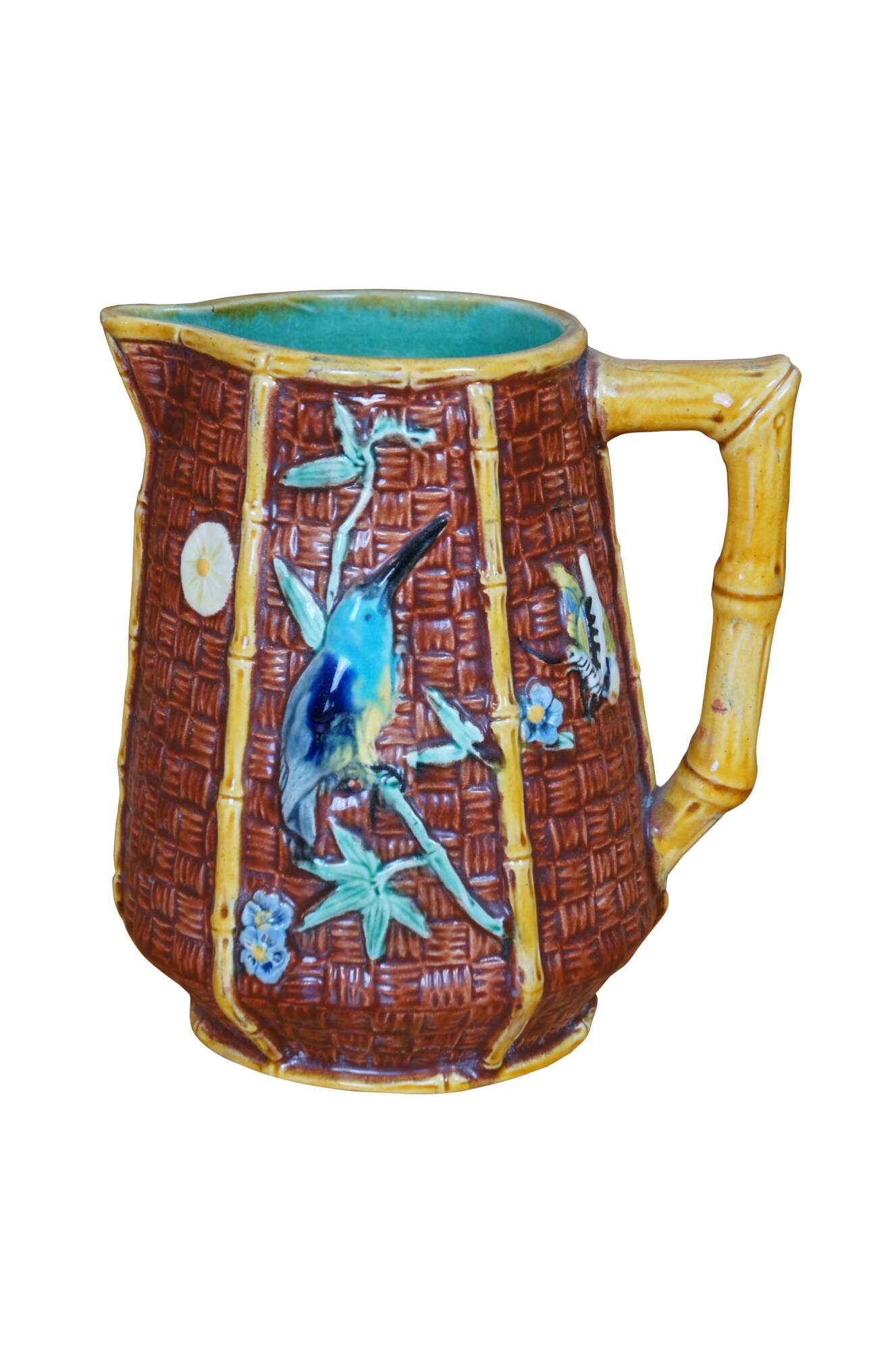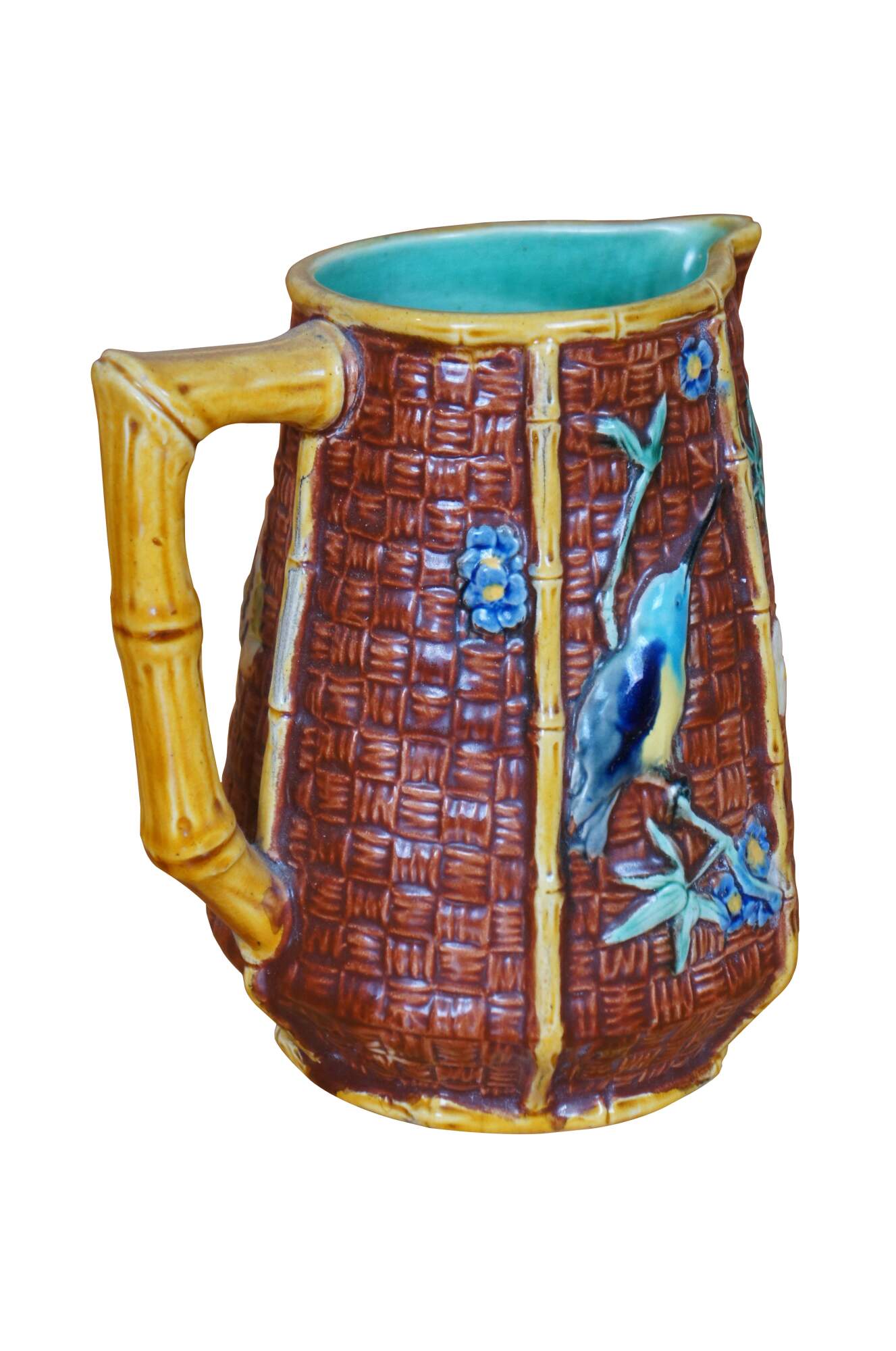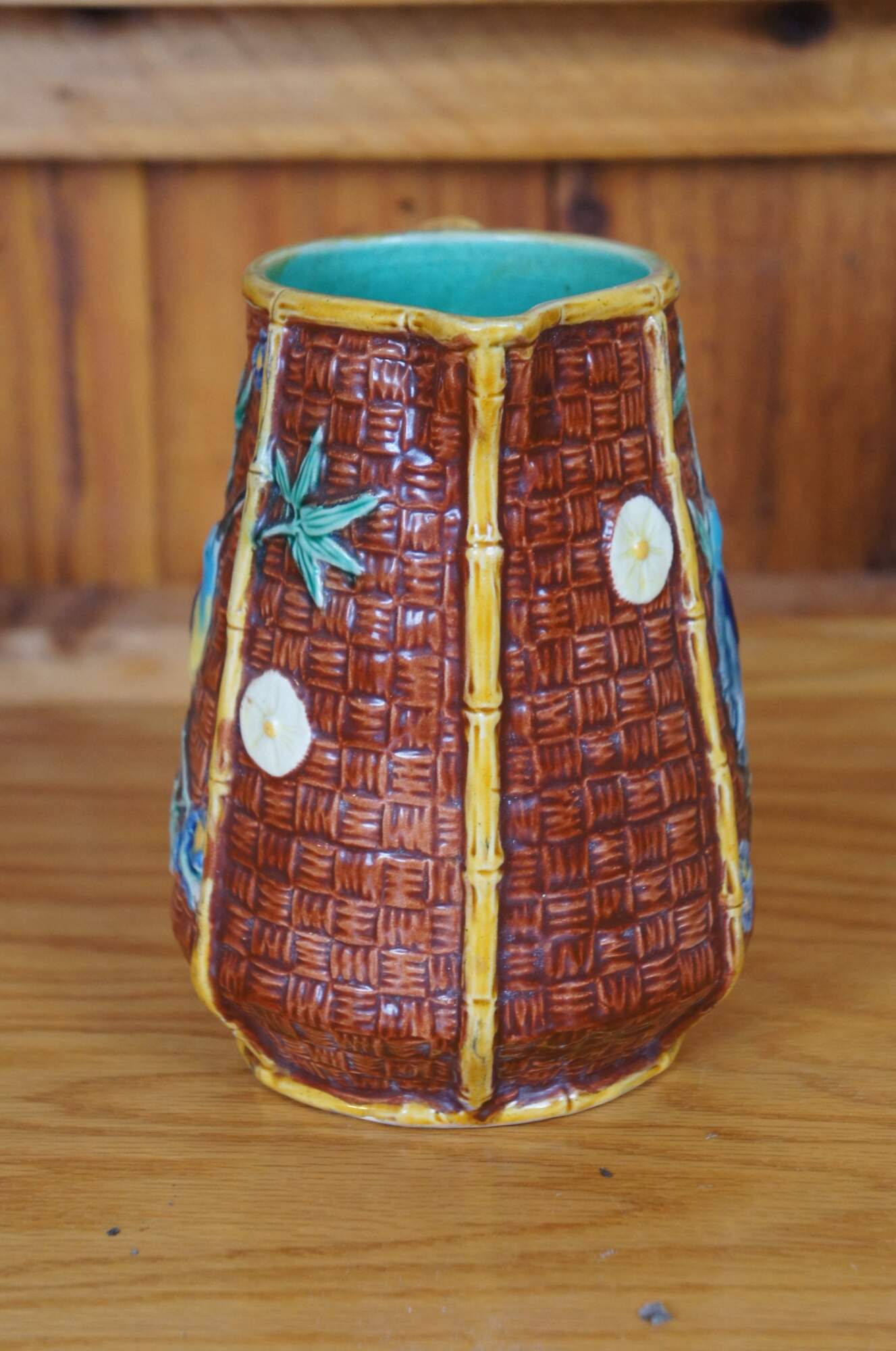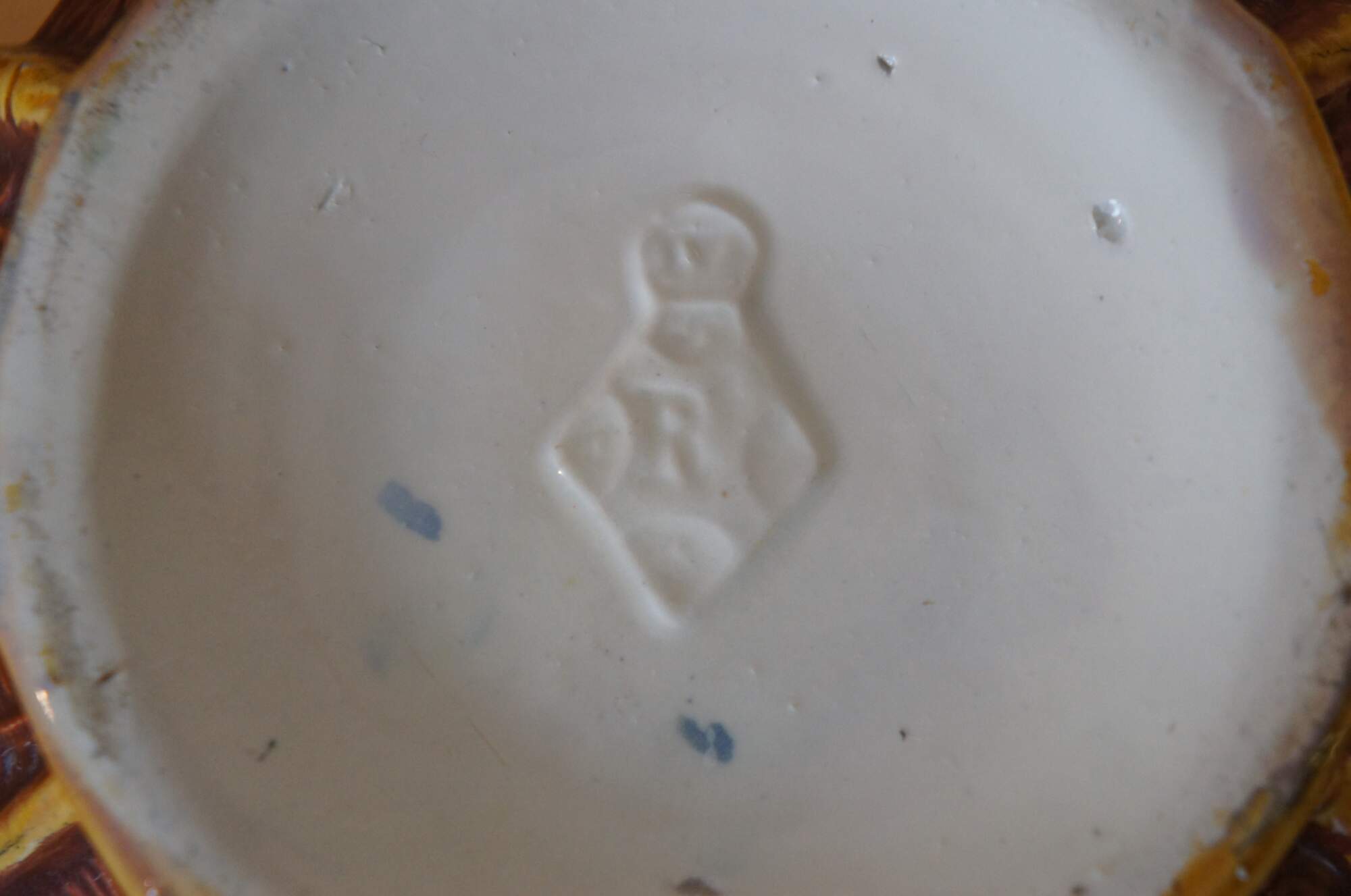
Antique Majolica Fielding Bamboo Basketweave Hummingbird Butterfly Pitcher Jug
$480.00
Shipping:
Free Shipping Included
Delivery:
Estimated 2-15 Business Days
Payments:
Credit Card, Check, Cash, PayPal, Apple Pay, Venmo
Returns:
30 Days 100% Money Back Guarantee, Buyer Pays Return Shipping
Description
Antique English Aesthetic movement Majolica pitcher or jug featuring a bamboo and basketweave design with hummingbirds, butterfly and flowers, turquoise interior. British Registration mark on base.
The Majolica of Simon Fielding & Company
Some of the most impressive group of majolica wares potted during the height or British majolica production originated at the Simon Fielding factory at Stoke-on-Trent.
The pottery which began as a consortium of five partners, originated as Hackney, Kirkham & Company in 1878 at the Railway Pottery. Shortly after it’s founding J. Kirkham dropped out as a partner, leaving four original partners, Frederick Hackney, Simon Fielding, Enoch Massy and Joseph Ball to operate under the name of F. Hackney & Co. They immediately began on the production of the latest fad in pottery, majolica.
In November of 1879 that partnership was dissolved leaving sole original partner, Simon Fielding, to operate under the name of S. Fielding & Company. In 1892, son Abraham Fielding took over the reigns of running the firm after Simon Fielding retired.
The company specialized in earthenware and majolica manufacture. While the period of majolica manufacture was relatively brief, it remains one of the jewels of the company’s history.
The company embraced the Japonisme so popular during the period, incorporating it into many of their designs. They also adopted Wedgwood’s brand name Argenta to describe their ivory ground majolica with pastel decoration.
In little more than a decade, the majolica production at Fielding had run its course and was no longer considered a priority. By 1891 the company was no longer advertising its majolica products so it had probably ceased or severely scaled down its production, as these ads from 1891 and 1894 show.
In 1912 the pottery name was changed from the Railway Pottery to the Crown Devon Works, taking on the name of Fielding’s most popular china brand.
The company remained in production for over 100 years producing a large range of china lines until finally closing in 1982. The Crown Devon Works was demolished in 1987.
Condition
Good Overall - wear/crazing
Dimensions
6.25" x 5.25" x 6.75" (Width x Depth x Height)










